Product liability cases often include personal injury claims when the victim has been injured or otherwise harmed by a defective product. This can include cases involving food contamination. Nobody wants to find something unexpected in their food. Still, contrary to popular belief finding a foreign body in your meal or groceries is not enough to be able to file a personal injury lawsuit. You may feel upset by the discovery, but generally, you need to have suffered some form of injury or harm resulting from the contamination.
Food Contamination is Not the Same as Food Poisoning
One question that comes up a lot in personal injury cases involving some kind of food contamination is whether or not food poisoning would be considered a personal injury. Food poisoning occurs when somebody becomes ill after consuming food due to bacteria like listeria or salmonella. This usually happens due to improper food handling, including failure to refrigerate the food or not cooking it for long enough.
In comparison, food contamination refers to the presence of a foreign body in the food, including glass, metal, animal parts, or other contaminants. When food contamination happens, it is governed by both state tort laws and federal food safety laws. Thus, if a foreign body injures an individual in their food, it would be considered a personal injury.
Who is Accountable in a Food Contamination Case?
Where you purchased the contaminated food will have some bearing on who the defendant will be in your lawsuit. When the contamination actually occurred is also important. For food purchased at a restaurant or market, the defendant could be any businesses within the supply chain, including the retailer, the wholesaler, the producer, or the grower of the food depending on when it was determined the contaminant entered the product.
How to Prove a Contaminated Food Case
There are two approaches when it comes to filing a personal injury lawsuit regarding food contamination – Negligence or Strict Liability. If your lawyer goes the negligence route, they will need to prove that someone acted negligently and, as a result, caused harm. Where a foreign body is present in food, it is generally foreseeable that it would result in harm. Common injuries include cuts to the mouth and broken teeth. However, in some cases, it may be possible to claim for psychological damages. If the contaminant was particularly disturbing, it could result in nightmares and recurring obsessive thoughts about food if the victim is afraid of it happening again.
If the approach taken is the strict liability route, the case becomes more of a product liability case. In this situation, it is not necessary to prove negligence, but you would need to show that a defective product – in this case, contaminated food – was put on the market despite being unreasonably dangerous.

-
Butler, Vines and Babb is a leading law firm in Knoxville, TN, with extensive litigation experience in Medical Malpractice Law, Birth Injury Law, Trucking Accident Law, Personal Injury Law, and Business Law. Contact us today at www.bvblaw.com or call 865-637-3531.
Please reference BV&B's content disclaimer (located in this channel's profile description) in regard to this shared content.

